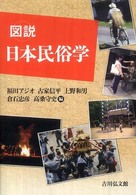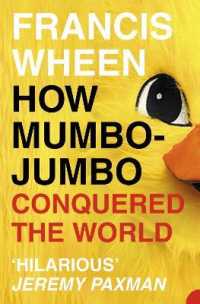Full Description
Over the last two decades, the study of discourse in film and television has become one of the most promising research avenues in stylistics and pragmatics due to the dazzling variety of source material and the huge pragmatic range within it. Meanwhile, with the advent of streaming and the box set, film and television themselves are becoming separated by an increasingly blurred line.
This volume closes a long-standing gap in stylistics research, bringing together a book-level pragmastylistic showcase. It presents current developments from the field from two complementary perspectives, looking stylistically at the discourse in film and the discourse of and around film. This latter phrase comes to mean the approaches which try to account for the pragmatic effects induced by cinematography. This might be the camera work or the lighting, or the mise en scène or montage. The volume takes a multimodal approach, looking at word, movement and gesture, in keeping with modern stylistics.
The volume shows how pragmatic themes and methods are adapted and applied to films, including speech acts, (im)politeness, implicature and context. In this way, it provides systematic insights into how meanings are displayed, enhanced, suppressed and negotiated in both film and televisual arts.
Contents
1. Introduction: introducing telecinematic stylistics, Christian R. Hoffmann (University of Augsburg, Germany) and Monika Kirner-Ludwig (University of Albany, State University of New York, USA)
2. Adapting Medieval stuff to fit the Modern Screen: a cognitive-pragmatic approach to strategies of evoking and ridiculing obsolete frames to entertain today's recipient, Monika Kirner-Ludwig (University of Albany, State University of New York, USA)
3. "Drucilla, we need to talk": The formulaic nature of problem-oriented talk in soap operas, Sabine Jautz (Universität Siegen, Germany) and Verena Minow (Ruhr-Universität, Germany)
4. On the usefulness of the Sydney Corpus of television dialogue (SydTV) as a reference point for corpus linguistic and stylistic analyses of TV series, Monika Bednarek (University of Augsburg, Germany)
5. "I shouldn't have let this happen": demonstratives in film dialogue and film representation, Maria Pavesi (Università degli Studi di Pavia, Italy)
6. Ideology in the multimodal discourse of television documentaries on Irish travellers' and gypsies' communities in the UK, Roberta Piazza (University of Sussex, UK)
7. Voice-over and presenter narration in TV documentaries, Jan Chovanec (Masaryk University, Czech Republic)
8. How comics communicate on the screen: telecinematic discourse in comic-to-film adaptations, Christina Sanchez-Stockhammer (Ludwig Maximilian University of Munich, Germany)
9. A multimethod analysis of autism spectrum disorder representation in fictional television, Susan Reichelt (University of Lancaster, UK)
10. Metatextual devices in Alfred Hitchcock's Notorious (1946), Adriana Gordejuela (Universidad de Navarra, Spain)
11. The Visual Discourse of Shots and Cuts: applying the Cooperative Principle to horror film cinematography, Christoph Schubert (Universität Vechta, Germany)
12. Repetition in sitcom humour, Thomas Messerli (University of Basel, Switzerland)
13. 'Subtitles have to become my ears not my eyes': pragmatic and stylistic choices behind Closed Captions for deaf and hard-of-hearing people: the example of the television programme Breaking Bad, Annie Dahne (Chatteris Educational Foundation (Hong Kong) and Roberta Piazza (University of Sussex, UK)
14. Relevance in film trailer communication: a multimodal account, Heike Krebs (University of Augsburg, Germany)
Bibliography
Index
-

- 電子書籍
- すみに置けない未亡人の禁断愛【タテヨミ…
-

- 和書
- 図説日本民俗学






